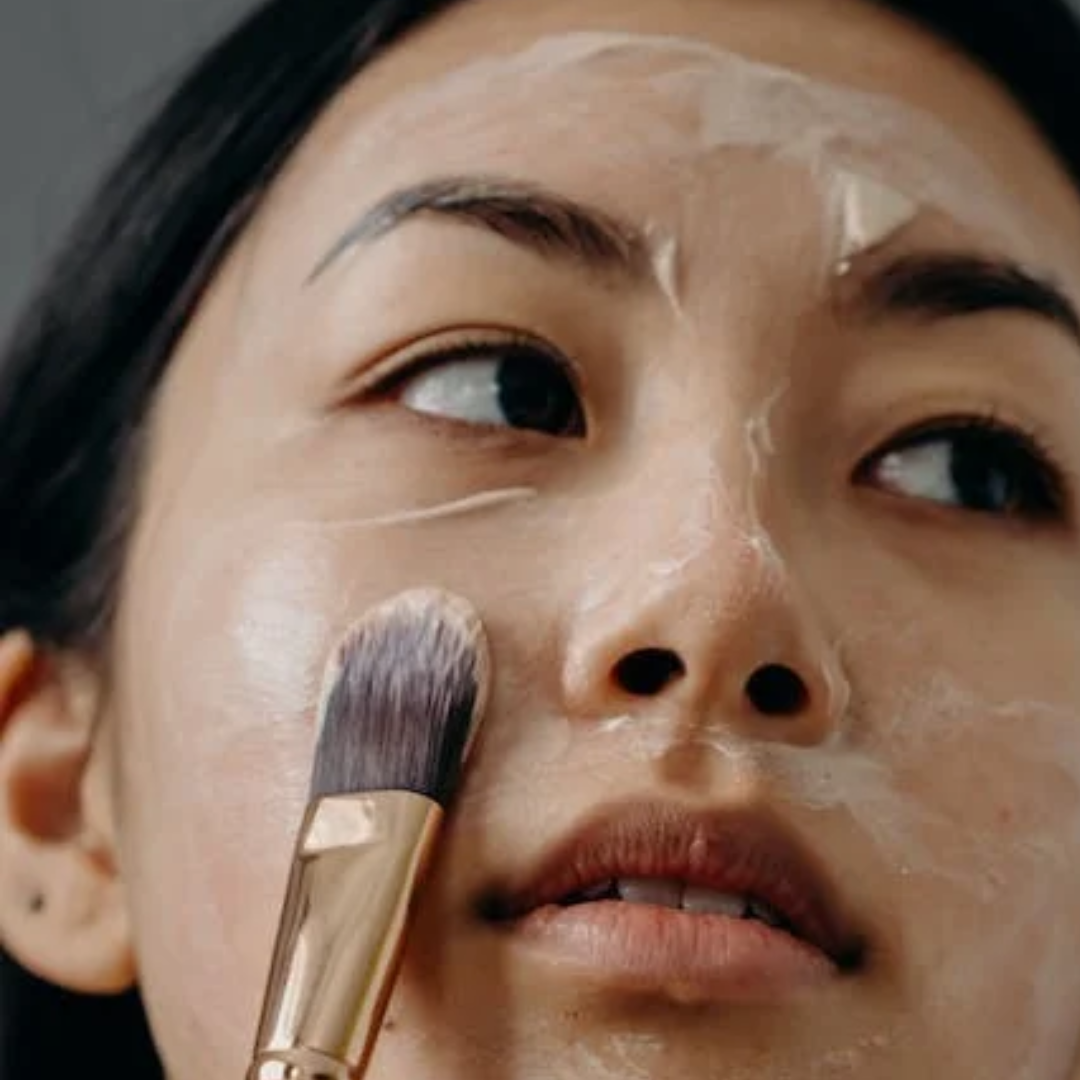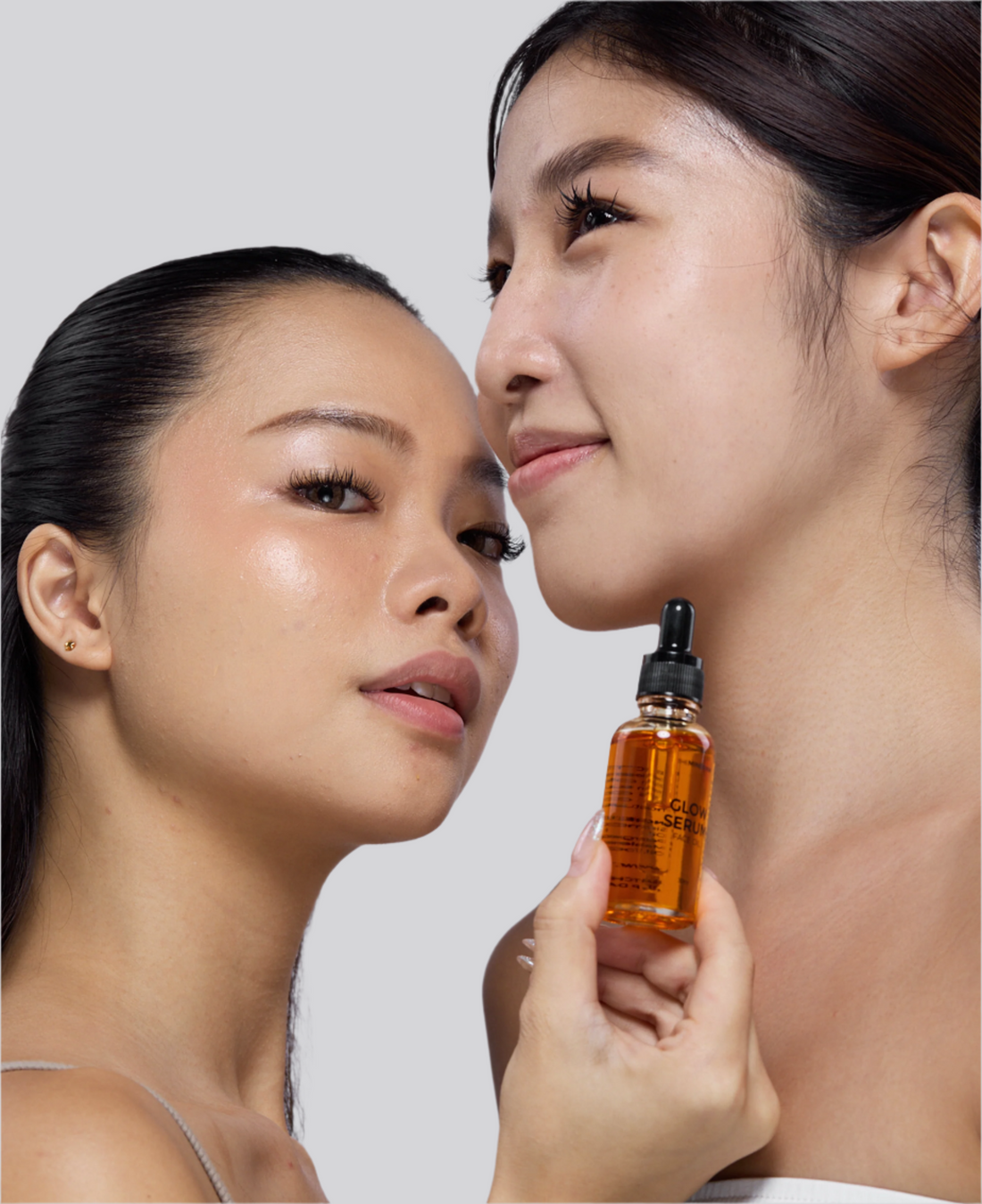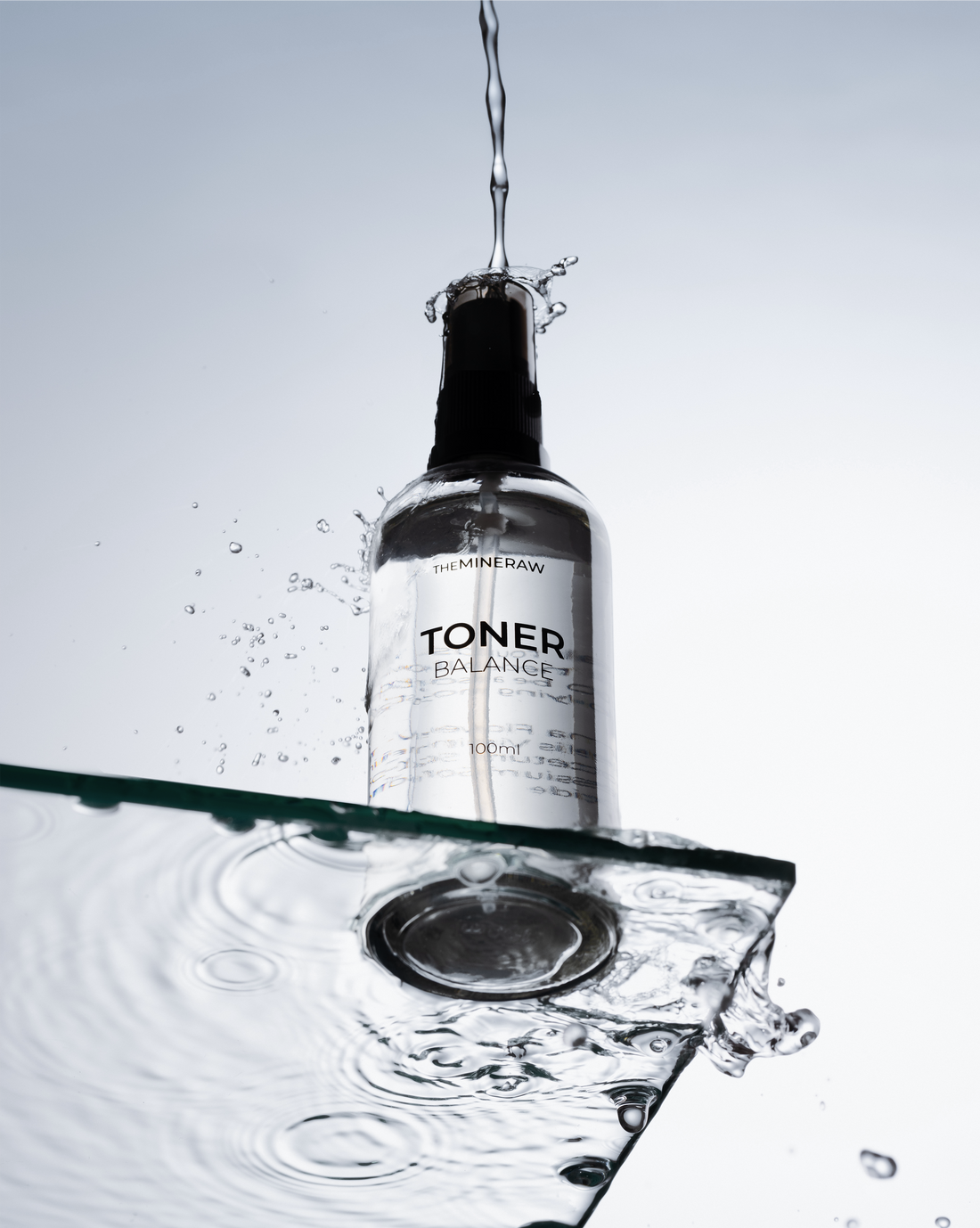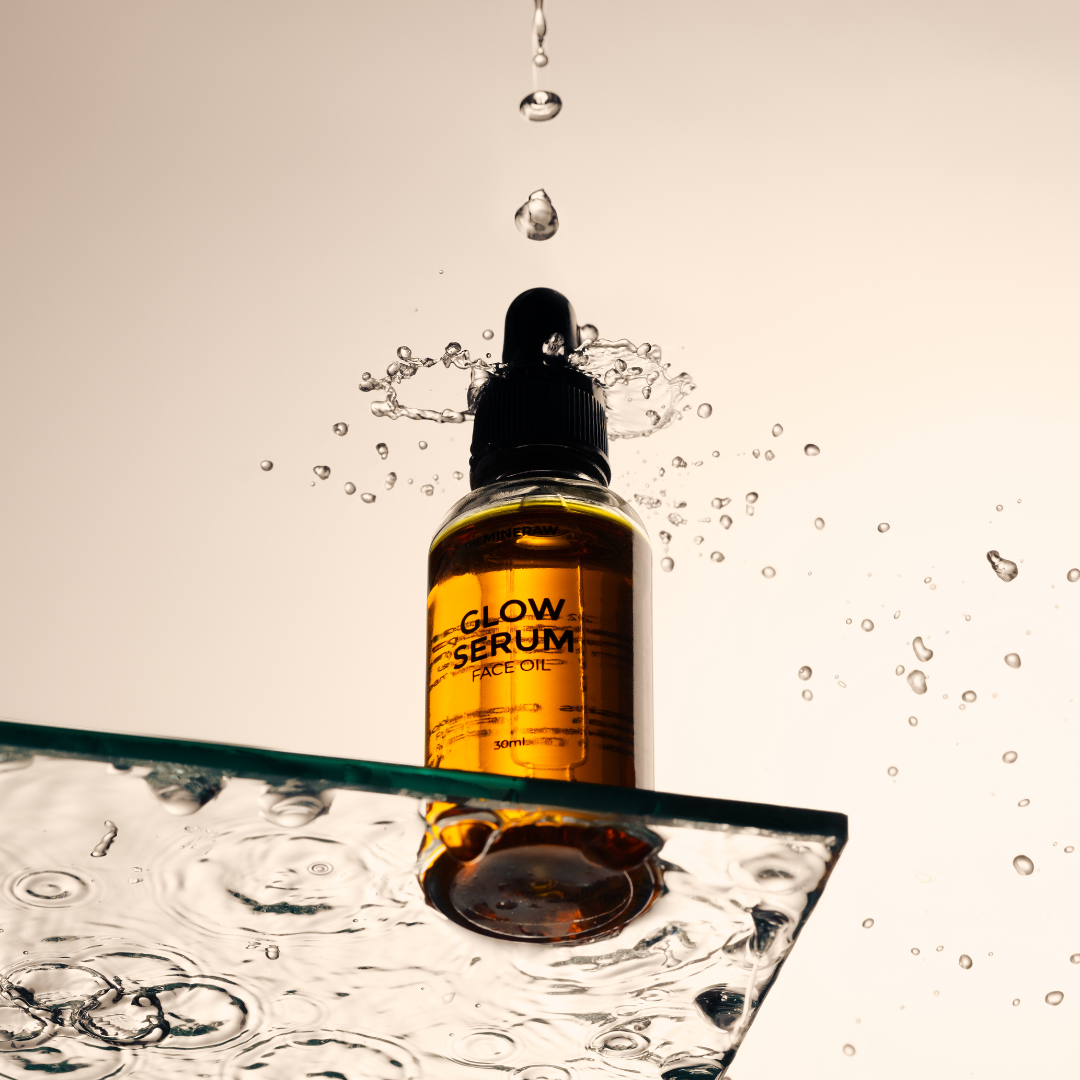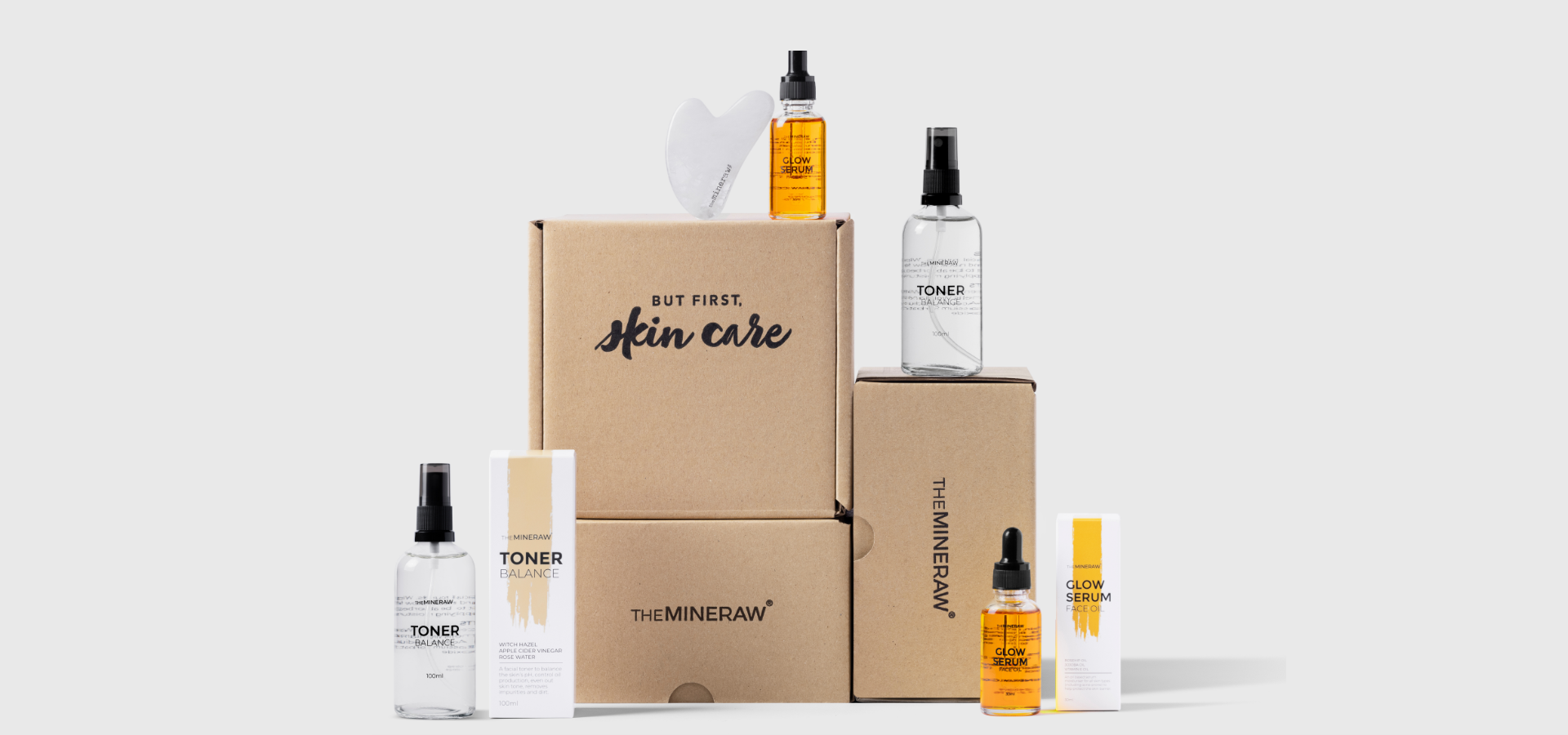Skin Diaries
Scooping your products - BIG NO
Nothing is more exciting than unboxing your new skin care products and enjoying its texture. "If you are touching your finger to a container of a skin-care product and then recapping it, there is a good chance of bacterial transfer over time," says Solana Beach, California-based, board-certified dermatologist Melanie Palm. " It is against the skincare rule to touch your face with your bare hands which could harm your skin in many ways according to our previous blog. Hence, introducing your face cream by using your fingers can transform your cream into a bacteria transferring medium that could lead to serious concerns like skin infections. Notice how most skin care brands include tiny metal spatulas or mask brush along with their main products? Trust us when we say it definitely benefits you as a consumer more than the business itself as these accessories prove to maintain your skin care products authenticity longer. By using a tiny metal spatula to scoop your expensive skin care, not only do you protect your skin barrier but you could also prevent bacteria from contaminating your products. The presence of bacteria in a product can change its pH (how acid or alkaline) thus compromising the quality of some products as they will only work at a specific pH. Skin accessories especially help those with skin concerns like eczema as it became apparent that they were constantly reinfecting themselves given their emollient creams used to come in big, old-fashioned, screw-top jars. Thus, the need to maintain hygiene while using your skin care products became a priority to maintaining a healthy skin barrier. Hence, if you find that every time you get rid of one outbreak of spots, the combination of grubby fingers and your moisturizer could be to blame. Luckily, you can easily get your skin accessories with us and instantly improve your skin care regime:
Learn moreVitamin C - Explained
Vitamin C is a water-soluble antioxidant that is a natural component of healthy skin. When we’re young, vitamin C levels in skin’s outermost two layers (epidermis and dermis) are abundant, but as we age, these levels naturally deplete. Unprotected sun exposure (UV damage) and pollution can accelerate this, leading to our skin looking and feeling dull, uneven, and less firm than it once was. Benefits Ability to even out skin tone and diminish the appearance of fine lines and wrinkles While this powerhouse ingredient is well-known for its skin-brightening benefits, research also shows it can shield skin from the visible impacts of environmental stressors, including free radical damage. Best form of Vitamin C Ascorbic Acid—also known as L-ascorbic acid—has the most skin-related research of any form of vitamin C. When properly formulated at a pH of less than 4 (2.6-3.2 is the ideal range), this form helps create younger-looking, firmer-feeling skin while fading signs of uneven skin tone and spots. Ascorbic acid also helps skin’s surface defend itself from free radicals and external stressors, lessening the effects of exposure to the elements. When and How to Use All forms of vitamin C mix well and layer with other skin care ingredients, including exfoliating acids and other vitamins and antioxidants, such as retinol and niacinamide. Vitamin C can be used twice daily, both morning and night. We highly prefer using it in the am as it helps defend the skin from sun damage under sunscreen. An example for a morning routine: cleanse, tone, Vitamin C, moisturizer and/or Sunscreen. Always apply your products in order from thinnest to thickest texture. During the day, always finish with a broad-spectrum SPF 30 sunscreen or greater. As usual, we always have our favorites that we would love to recommend to individuals :
Learn moreShould I be Moisturizing?
Does moisturizing only matter for dry skin type? Moisturizing mainly focuses on the stratum corneum, the outer layer of skin and when this layer is properly taken care of, it protects your skin from irritants and inflammation. The stratum corneum consists of fatty acids and ceramides in which moisturizers would help maintain the skin health by maintaining water retention. Moisturizers work to improve comprised skin barrier that leads to increasing trans-epidermal water loss associated with various kinds of dermatitis. Water from deeper epidermal layers moves upward to hydrate stratum corneum cells and is often lost to evaporation. Epidermal water content is essential to prevent skin dryness and maintain plasticity. Hence, everyone should be moisturizing, even those of you with oily skin. Moreover, moisturizers are the holy grail for dry skin especially when facing symptoms like dryness, tightness, pain, itch, stinging, and tingling. Moisturizers work effectively to overcome dry skin underlying dermatoses, interrupting dry skin cycle while maintaining skin smoothness. The benefits of Moisturizing Improves your skin barrier Helps maintain skin elasticity Helps fight wrinkles Helps balance the skin oil production How do you choose the right moisturizer ? THE PATCH TEST Choosing the right moisturizer could be a hassle and a very long journey. However, individuals can try the patch test in which they apply a small amount on your inner arm where your skin is thinner and wait a day or two to see if you test your reaction. Gradually you can move up to the face by applying it to a small area along your jawline to see if you develop any new pimples before putting it all over your face. It’s also crucial to check the label for potentially irritating ingredients, like chemical exfoliants (salicylic acid, glycolic acid, lactic acid, for instance), retinol, and botanical extracts. These can be irritating to anyone, but those with sensitive skin are most likely to react to these ingredients as well as fragrances and preservatives. CHOOSING THE RIGHT MOISTURISER Moisturizers consist mainly of 3 ingredients that help with different skin type such as humectant, emollient and occlusive. These ingredients determine the type of moisturizer and suitable skin. Humectant dominant/based moisturizers: Great for all skin types, especially oily skin types Draws water to skin cells to keep skin hydrated Absorbs very quickly Type of moisturizer: Gel formulas Emollient dominant /based moisturizers Great for normal, dry, and combination skin types Helps repair your skin’s barrier Creamy consistency Type of moisturizer: Light cream or light lotion formulas Occlusive dominant/ based moisturizers Great for mature, dehydrated, dry skin types Thicker in consistency Blocks the evaporation of water- perfect for dry skin Type of moisturizer: Balms, thick creams In general, individuals can select their moisturizer based on its consistency and its effectiveness towards their skin type: Gel - combination to oily skin type Creams- Dry to combination skin type Liquid/lotion- combination skin type and, depending on the formulation, some oily skin types can use liquid/lotion type of moisturizers We do hope this would guide individuals to get the right moisturizer and start protecting their skin barrier.
Learn moreTEWL - Transepidermal Water Loss
Transepidermal water loss or commonly known as (TEWL) is the amount of water that evaporates through the layers on skin due to external factors such as environment, climate and etc. The skin is comprised of three primary layers: the epidermis(the outermost layer), the dermis (middle layer), and the hypodermis (the innermost layer). When water passes from the dermis through the epidermis and evaporates from the skin’s surface, this is known as transepidermal water loss. This is highly associated with our skin barrier health as factors that damage the skin’s barrier function can also affect TEWL levels. You can identify if you’re suffering from excessive TEWL from these signs: Irritation: Water loss is caused by a damaged skin barrier, which often feels irritated. Flaking: The topmost surface of the skin dries out, dies and peels away in flakes. Itchiness: The skin cracks from water loss, causing an itchy feeling Tightness: Dehydrated skin cells condense and pull tighter across the surface, resulting in a tight feeling. TEWL again highlights the importance of a healthy skin barrier as it acts as an additional layer of protection for our skin while locking our skincare in our skin for as long as it could throughout the day. A damaged skin barrier exhibits signs through dry skin,acne breakouts and clogged pores as they are ineffective to water retention, which can lead to skin conditions. To keep your skin's ecosystem healthy and prevent TEWL, take a look at the following lifestyle and skin care tips. Always remember to moisturize your face Avoid harsh cleansers and exfoliators Never skip SPF even on gloomy days Protect your skin barrier with a suitable oil for your face. Don't worry as The Mineraw can help you achieve on of these solutions with our bestseller the Glow Serum Face Oil. Don't forget to get yours below:
Learn moreGreen Tea - More Than a Drink
Green tea is more than just a drink. Green tea is the holy grail for many health benefits be it for losing weight or controlling acne breakouts. Here’s why: Green tea is known for its anti-aging, soothing, and antioxidant properties, explaining the surge of green tea facial products in skincare lines. Green tea helps soothe and protect the skin, reduces sebum, and minimizes signs of aging due to its high level potency of epigallocatechin gallate (EGCG) and epicatechin gallate (ECG) with antioxidant properties. But how exactly does green tea help with all these skin concerns? Acne breakouts Acne is the result of excess sebum clogging pores and stimulating bacterial growth. Sebum production can be very unpredictable as it varies from hormones and food intake that only depends on the individual The presence of EGCG helps reduce sebum excretions as it is anti-androgenic and lowers lipid levels. As a result green tea can slow or stop the development of acne. Anti aging Green tea has the ability to rejuvenate dying skin cells. By protecting and repairing your cells, this antioxidant can combat signs of aging and make dull skin look healthier. As we age our collagen levels naturally tend to decline. However, green tea consists of vitamins like vitamin B-2, that has the ability to maintain collagen levels, which can improve the firmness of your skin. Moisturizes Skin Green tea is a good hydrating agent as it has vitamin E that is known for its ability to hydrate the skin. Studies show that green tea increased skin moisture and a reduction in skin roughness when applied for a month. All in all, individuals should consider using green tea tropically in their skin care routine as it helps protect and rejuvenate your skin. However, directly applying green tea to your face could be harmful as green tea is challenging to formulate because it is highly unstable and is easily oxidized under extreme weather. Thus, it is highly recommended for individuals to purchase green tea products specially suited for skin care when considering using it for your face. Great news is The Mineraw always has its best recommendations for individuals interested to get green tea products: Don't forget to check out our personal best below also:
Learn moreTouching your Face
You are most probably touching your face right now while reading this blog thus highlighting the importance of today’s topic. Touching your face is hands down a very gross action as we are involuntarily spreading germs, dirt and oil across our face. The effects of this action doesn't just trigger acne breakouts and clogged pores, but it can also cause premature ageing too. Some of us don’t realise the harm we can cause to our skin by easily just touching it as it is not physically visible. Here are some reasons why you should stop touching your face : Touching leads to leads to scarring When we stare at the screen and start touching our face we have the tendency to pick on our acne or pores which would lead to permanent scars on the face. It can cause acne breakouts Touching your face causes the dirt, germs and oil on our hand transferred to our face causing them to clog our pores and irritate our skin barrier which leads to breakouts. Prone to falling sick Touching your face can significantly increase the risk of infection with flu or cold viruses and the new coronavirus as our hands can easily transmit the germs or viruses upon contact with other people or things shared in public. Touching your face is a non compromised commandment in the skin care world and we should all try our best to avoid it at all cost. Here are some helpful tips to stop touching your face : 1) Keep your hands busy Try diverting yourself from touching your face by doing something else 2) Always remember to wash your hands first Never touch your face with your dirty hands, maybe keep a sanitizer around so you can use it at any time before touching your face 3) Don't skip your moisturizer Dry skin sometimes irritates the skin causing us to scratch it repeatedly causing more harm to your skin All in all, we hope you can slowly try being more conscious of this action and gradually stop it even if it means asking your friends to physically stop you from it through force by any means to protect your skin.
Learn moreSave Your Skin Barrier
Protecting your skin barrier now could be one of the blessings your older self will thank you for in the future. Evident signs of again, water loss, dull or rough face, post-breakout marks are long term effects of damaged skin barriers. What is the skin barrier and why is it so important? The outermost layer of your skin, called the stratum corneum consists of tough skin cells called corneocytes that are bound together by mortar-like lipids. It is also called the “brick-mortar” structure—corneocytes as the brick and lipid interface as the mortar in which the “bricks,” contains keratin and natural moisturizers whereas the lipid layer contains cholesterol, fatty acids, and ceramides. This skin barrier is depicted as a brick wall as it helps reflect the harmful toxins of the skin’s surface keeping the skin healthy while retaining moisture into the skin. Without it, all sorts of environmental threats that could penetrate your skin and wreak havoc in your body. Signs of damaged skin barrier: Dry skin Itchiness Acne Inflammation rough or discoloured patches Skin infections - bacterial,fungal Nevertheless, it's not too late to repair your skin barrier. Here are a few guidelines to help improve your skin barrier health. Reflecting on your skincare routine Your skincare routine may be harsh towards your skin barrier without you realising it. Over-exfoliating is a common cause for damaging skin barrier as it causes the accelerated removal of dead cells from the skin. Cleansers that leave your face squeaky clean are not as attractive as it looks as it sucks out the important oil needed to protect your skin barrier. Do find suitable cleansers according to your skin type and concerns. NEVER forget your SPF Protect your skin from the sun, every day. The ultraviolet rays from the sun is one of the major causes of a damaged skin barrier. Use a sunscreen that is rich in antioxidants and has an SPF of 30 or greater. Using a moisturizer Moisturisers help all skin types protect their skin barrier by reducing water loss and retaining moisture in the skin. Moisturisers that contain ceramides or a humectant like hyaluronic acid can help your skin barrier seal in moisture. Your skin barrier is your body’s frontline defense against everything the world throws at you. Keeping it healthy is much more than a cosmetic concern. Here's a few products we recommend to protect your skin barrier:
Learn moreChoosing Your Cleanser
Choosing a suitable cleanser might as well be considered the most stressful decision of your life as it is literally the first step to basic skin care routine. Imagine, coming home to an effective cleanser that removes every trace of dirt, sweat and makeup allowing the skin to breathe, repair and renew itself. A cleanser aids other serums and vitamins to penetrate your skin more deeply and perform their tasks more efficiently. A good cleanser will be gentle, fragrance and irritant free and won’t leave your skin feeling tight or dry after rinsing. It is important that you choose a cleanser that is suitable for your skin type. Do find out the best cleanser the most suitable for you according to your skin types and concerns. Gel Cleansers Suitable skin types : Normal skin, oily skin, combination skin and acne-prone skin. Clear, jelly-like consistency One off deep cleansing, decongest pores, remove excess oil and clean out acne-causing bacteria Leaves your skin moisturised Recommended Cleanser : Cosrx Snail Mucin Gel Cleanser Foam Cleansers Suitable skin types: Oily skin and combination skin Builds up to a foamy consistency when mixed with water. Helps clear out pores, remove dirt and also remove makeup. The main ingredient that causes behind foam cleansers is sodium lauryl sulfate (SLS) Recommended Cleanser: Inisfree Green Tea Foam Cleanser Cream & Lotion Cleansers Suitable skin types: Normal Skin,Dry skin and sensitive skin. Comes with moisturising properties that will not produce lather or strip away skin’s natural oils Help to control sebum excretions. Recommended Cleanser: CeraVe Hydrating Cleanser Oil Cleansers Suitable skin types: all skin types. Recommended for removing make-up and thorough cleansing. To double cleanse, first cleanse skin with an oil-based cleanser followed by a light foaming, gel, cream or lotion cleanser. Leaves skin supple and soft Recommended Cleanser: Hada Labo Oil Cleanser Micellar Water & Water-based Cleanser Suitable Skin Type: Dry skin, oily skin, normal skin and sensitive skin. Lightest forms of facial cleanser that almost look like water! Micellar water is usually applied with cotton pads and doesn’t need rinsing. Recommended Cleanser: Garnier Micellar Water Remember to properly address your skin type and concerns before choosing your cleanser in order to invest in the right products.
Learn moreExes and Oils
The common under link between your exes and face oils is that they both eventually promote a glow up be it in your life or for your skin. If you are someone with oily skin, don’t worry this blog is still relevant for you and here’s why: By choosing the right oil for your skin type, individuals can attain a natural glow from within with the help of face oils. We are way past the stereotypes in which oil was seen as dirt that has to be eliminated from the skin surface at any cost. Instead, lightweight oils like rosehip, are almost traceless once blended in and feature anti-inflammatory properties—making them an excellent choice for pimple-prone and oily skin. Individuals have to understand that Face Oils and Moisturizers are not the same as moisturisers are usually water-based, which focuses on hydrating the skin whereas face oils are obviously oil-based works to improve skin barrier and condition the skin. For a glowing skin it is very essential to have both as they work in complementary ways to hydrate the skin and retain moisture. Ideally, the face oil is used last in your skin care routine as it helps seal the precious serums and moisturiser applied to the skin. The lack of face oil may cause water-based products to evaporate easily from your skin surface affecting its effectiveness to work on your skin. Benefits of Face Oil super soothing and luxurious on the skin, serves as a protective barrier for all the products that come before it, sealing in your moisturizers, serums and vitamins preventing outside bacteria and dirt from entering your pores. Great News! The Mineraw’s Glow Serum Oil is our bestselling product amidst the public and we know why. This natural oil is anti-inflammatory and antimicrobial, not to mention free from unwanted additives that could harm your skin. The best part is ingredients used are suitable for all skin types and concerns as its main ingredient is rosehip oil. Don’t forget to grab our miracle worker with us today!
Learn more

